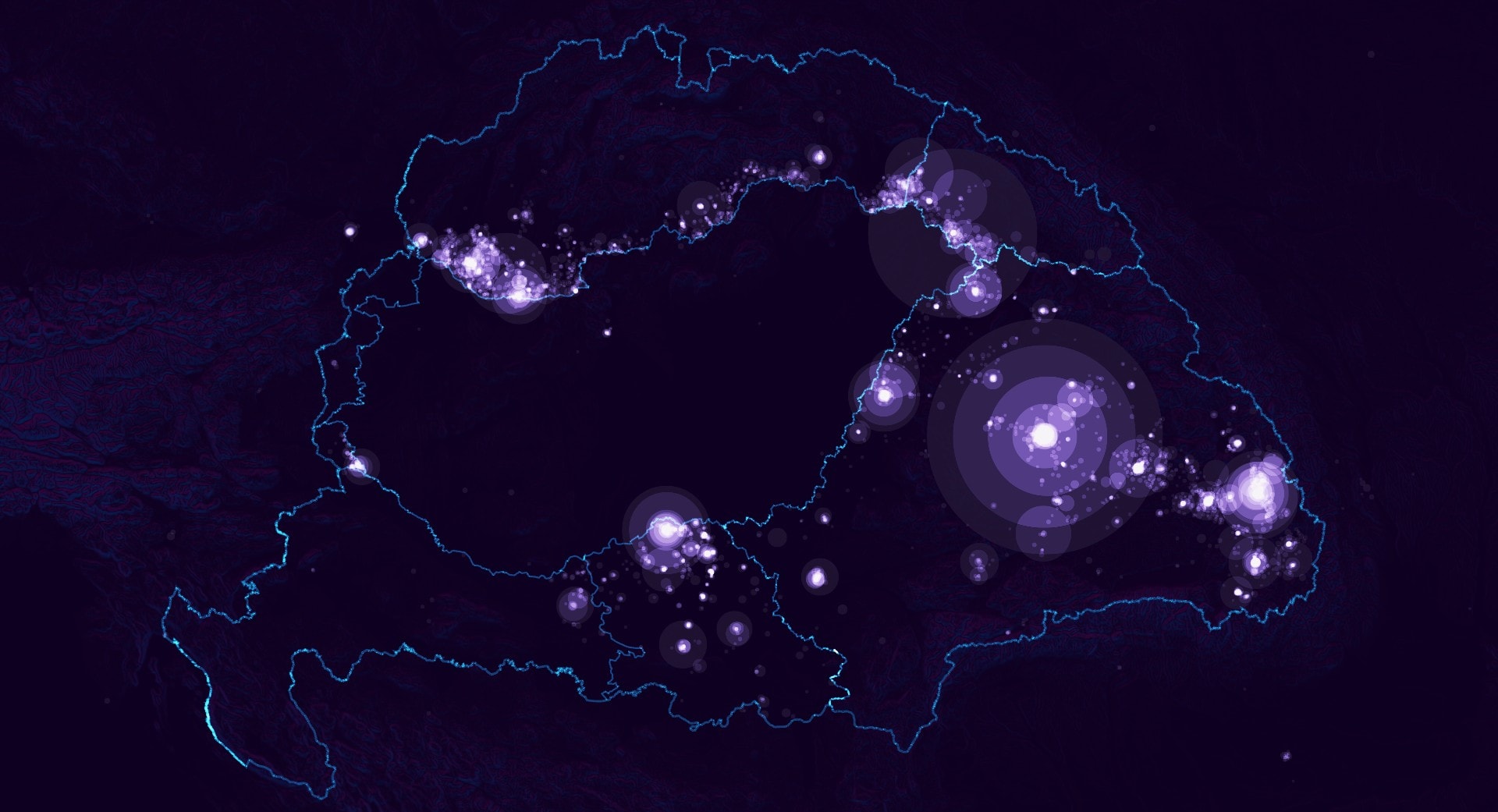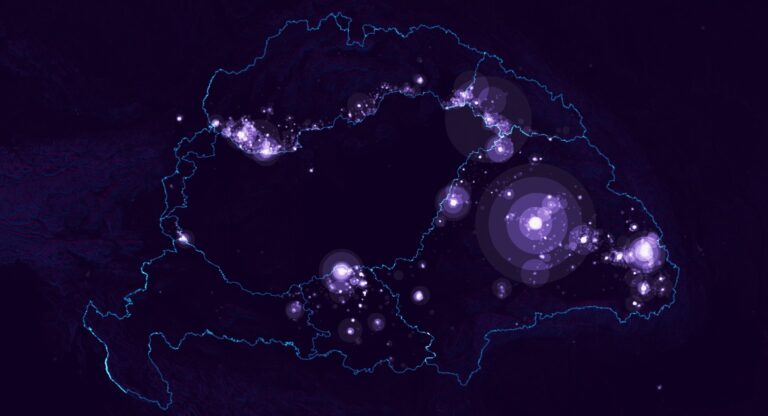by András Hont and Tamás Bodoky / Atlatszo
It is one of the most hopeless undertakings in the sharply divided Hungarian public sphere to convince the reader of your truth from the supposed opposing side. Especially not if this person wants to prove that he does not accept the division of political sides in his own activities, does not think that his actions serve one or the other political force. And it is hopeless to try to prove this at a time when the veil is being lifted on his diabolical conspiracy against the nation. However, according to Gergely Huth’s article last week on “dollar media” – and among them our newspaper, Atlatszo – “this revelation is not only a milestone, but the lighthouse of Pharos itself, the eternal sin signal that warns us again and again”, so, feeling the exceptionality of the occasion, we will nevertheless try to present our arguments to the readers of Magyar Nemzet in the hope of understanding.
This article was originally published on english.atlatszo.hu.
In this dramatic moment, which is both a milestone and a beacon of light in Pharos, but also a crime signal, we cannot remain silent about the fact that Atlatszo is not in a foreign payroll, does not work for orders, has no intention of obstructing national goals, is not part of any backroom power, and does not eat other people’s lunch. On the other hand, the factual material on which the government and the pro-government media base their „dollar-leftist” communication is largely known thanks to the investigative work of Atlatszo.
We cannot speak on behalf of others, so we will not go into Gergely Huth’s rants of other organs and actors, and we will limit ourselves to the activities of Atlatszo. However, there is one small point to note about the quality and internal consistency of the article that concerns us. In his work, rich in folktale elements and not lacking in self-contradictions, Huth mentions the 2014 Norway Fund case as a key moment. According to Huth, this is when the new network of agents (journalists and human rights activists) became visible, and “the agent left was then definitively supplanting popular, patriotic left initiatives”, only to find in the next paragraph that the new agent left was killing off “the moral oppositionists of the kind of András Schiffer”, following the example of the Hungarian Communist Party led by Mátyás Rákosi in the 1950s.
The facts, however, muddle the threads of this fantasy story, because the Hungarian government’s action against the grants from the Norwegian Fund was motivated by the fact that the organisation distributing the money, the Ökotárs Foundation – as János Lázár, the then Chancellery Secretary of State, put it -, was “openly and with a thousand strings attached” to a political party. That party was LMP, headed at the time by András Schiffer, an old acquaintance of both of us, sometimes a comrade-in-arms, sometimes a quarreling partner. In other words, according to Huth’s logic, it was András Schiffer’s party, that killed off the ‘moral oppositionists like András Schiffer’. Interesting.
Huth is equally generous with information about Atlatszo. Our main crime is the participation in an IJ4EU-funded project, which in the author’s interpretation means exposing the finances of Hungarian organisations beyond the border. In fact, it is tantamount to a reconstitution of the Entente, since Atlatszo is carrying out a series of attacks against Hungarians beyond the border “in collaboration with Romanian, Slovak, Serbian, Croatian, Slovenian, Austrian and Ukrainian editorial offices”.
Although it is not unprecedented that we participate in joint work with journalists and NGOs of other nationalities, we would never have thought that in the leading pro-government daily newspaper Magyar Nemzet, the attention of a fiercely right-wing author should be drawn to the fact that Romanian, Slovak, Serbian, etc. editorial offices usually also employ Hungarian staff. Atlatszo monitors Hungarian spending beyond the border, primarily together with Hungarian colleagues there, and the project Huth picked out was the brainchild and was led by the Romanian Atlatszo Erdely portal, inspired by Atlatszo, but independent of us in terms of organisation and funding – with Hungarian staff only. Journalists of Hungarian nationality from Serbia and Slovakia also worked on the project.
Let us sincerely hope that Huth’s article does not echo the exclusionary undertones of the sadly remembered 2004 referendum on dual citizenship.
In the framework of the Hungarian Money project carried out in 2020, five editorial teams from five European countries investigated what Hungary has spent at least €670 million on in neighbouring Romania, Slovakia, Slovenia and Croatia over the past decade, in a project funded by the European Commission through IJ4EU with a total of €47,000 in EU money. The investigation, led by Atlatszo Erdély and based on hard-to-access official data and documents from the Bethlen Gábor Fund, which manages Hungarian foreign aid, revealed how the Orbán government spends Hungarian taxpayers’ money with Hungarian minority organisations abroad and how it uses this “soft power” to exert influence abroad.
Atlatszo is not concerned with the spending of money by the Hungarian state in neighbouring countries because it does not consider it important or because we would like to prevent it, but because we consider it very important. We believe that the Hungarian communities beyond the borders are not indifferent either, and in fact the most important thing for them is that the money they receive is spent in the most purposeful, efficient and beneficial way. It is not for us to decide to what extent our findings are correct, i.e. to what extent an investment or donation serves their interests or could have been better spent, but mainly for the communities concerned. It is certainly not to their detriment if they learn about these transactions, about which the Hungarian government does not provide much public information, from several angles and in detail.
As is generally the case, it is not our job to draw conclusions from the facts and phenomena that our activities reveal. Atlatszo is mainly concerned with the use of public money and the actions of those in public power, but we are aware that these issues are not exclusive to political decisions. Investigative journalism is a function that we believe someone in a well-functioning society must perform. We believe that those who support power also benefit from learning about abuses of power. In Hungary, Fidesz has been in power for 12 years, so naturally we are most interested in the affairs of people associated with this party, but not exclusively.
Let us return to the question of the “dollar left”. Atlatszo was the first to report on the group of companies that later received 3 billion forints raised by the organisation Action for Democracy to the Everybody’s Hungary Movement, from who knows what source. Three years ago, we reported about the players behind the opposition campaign in the municipal elections: our story was titled “The data mining group of the downtrodden old left helped the opposition in last year’s elections”. It can still be read by anyone on our website, and was cited dozens of times by the pro-government press during last spring’s election campaign.
We simply have no regard for who will be hurt and who will benefit from what we reveal.
However, we are very much in agreement that a newspaper, an NGO, an investigative team or anything else can be vulnerable to a funder. Whether the money comes from public funds, from abroad, from advertisers or even from small private donors. In the latter case, popularity-seeking among the public can be a source of vulnerability and a distraction from the original objectives. As for foreign support, individuals, organisations and governments may consider it important to promote certain values beyond their own borders. This is exactly what the Hungarian Government is doing when it spends hundreds of millions of euros on Hungarian minority organisations beyond its borders.
For our part, we see two ways to avoid this vulnerability. One is full transparency. True to our name, all financial data is available from our website and public reports. We need little greater credit than that our „dollar media” critics took it from there. The other is that we try to be careful about proportions, meaning that only part of our budget comes from foreign institutional donors (and that too from multiple sources), while more than half of our budget comes from micro-donations and personal income tax 1% donors, that is, thousands of individuals. And although this transparency and this donor structure is not common in Hungarian public life, we do not pretend to be perfect. We leave the faith in perfection to Gergely Huth and the „forintinfluencers”.
The Hungarian version of this story was published by Magyar Nemzet Online.








